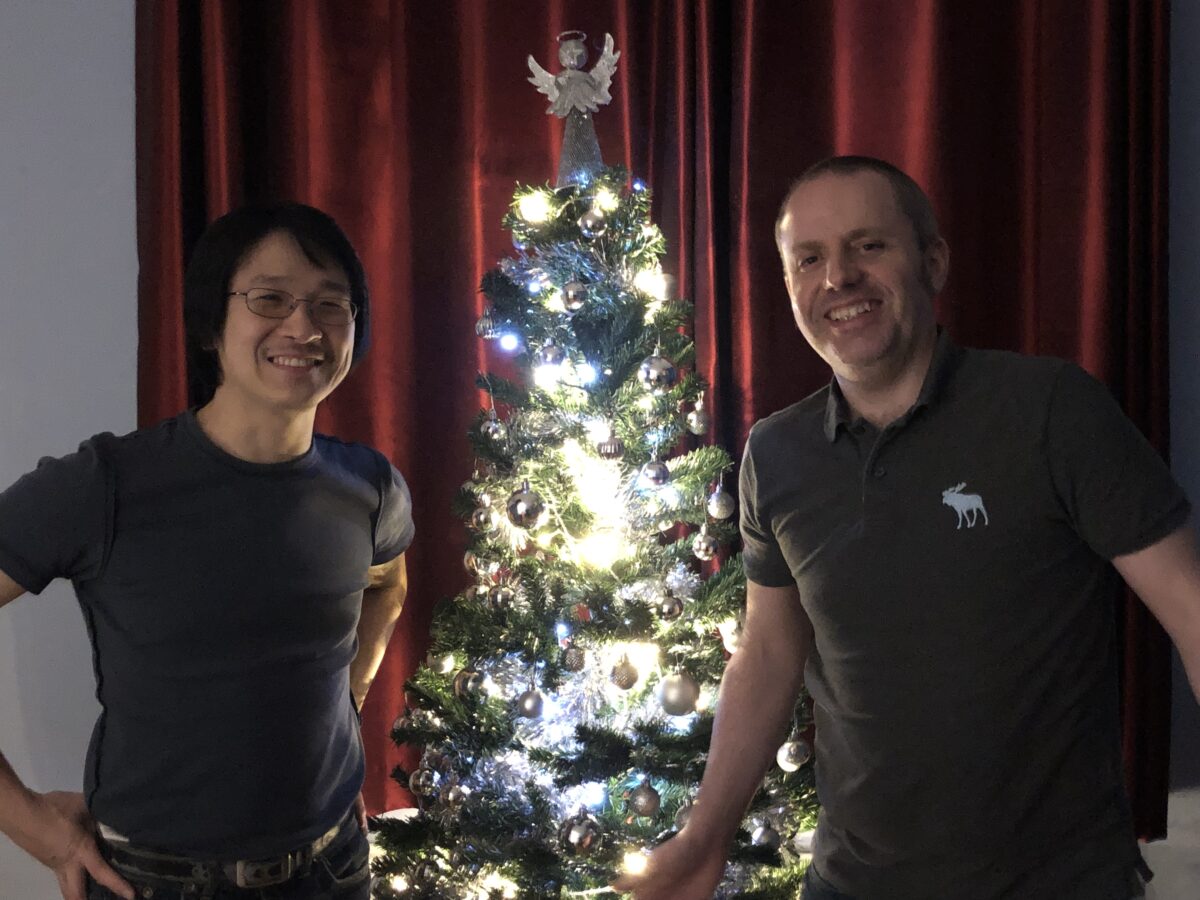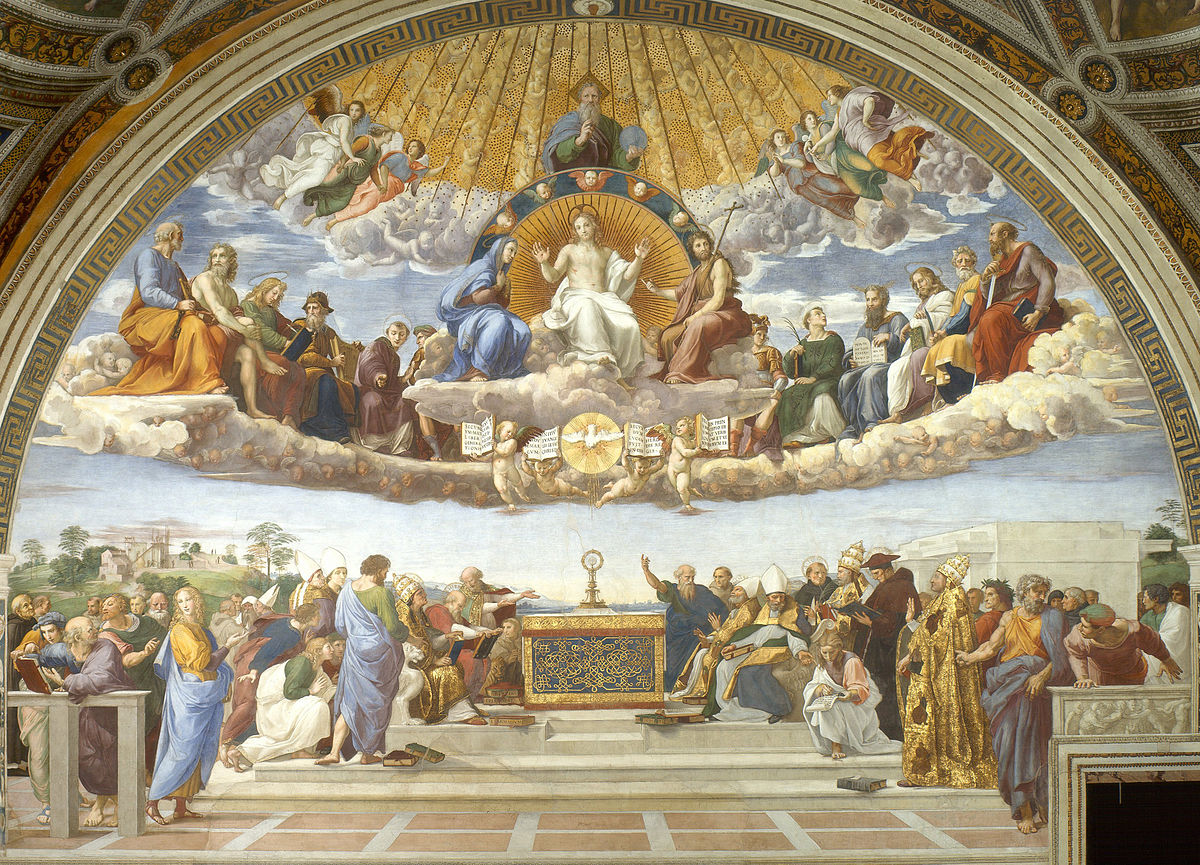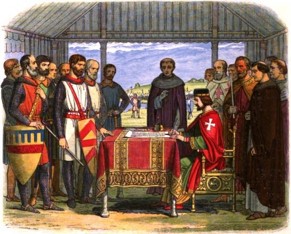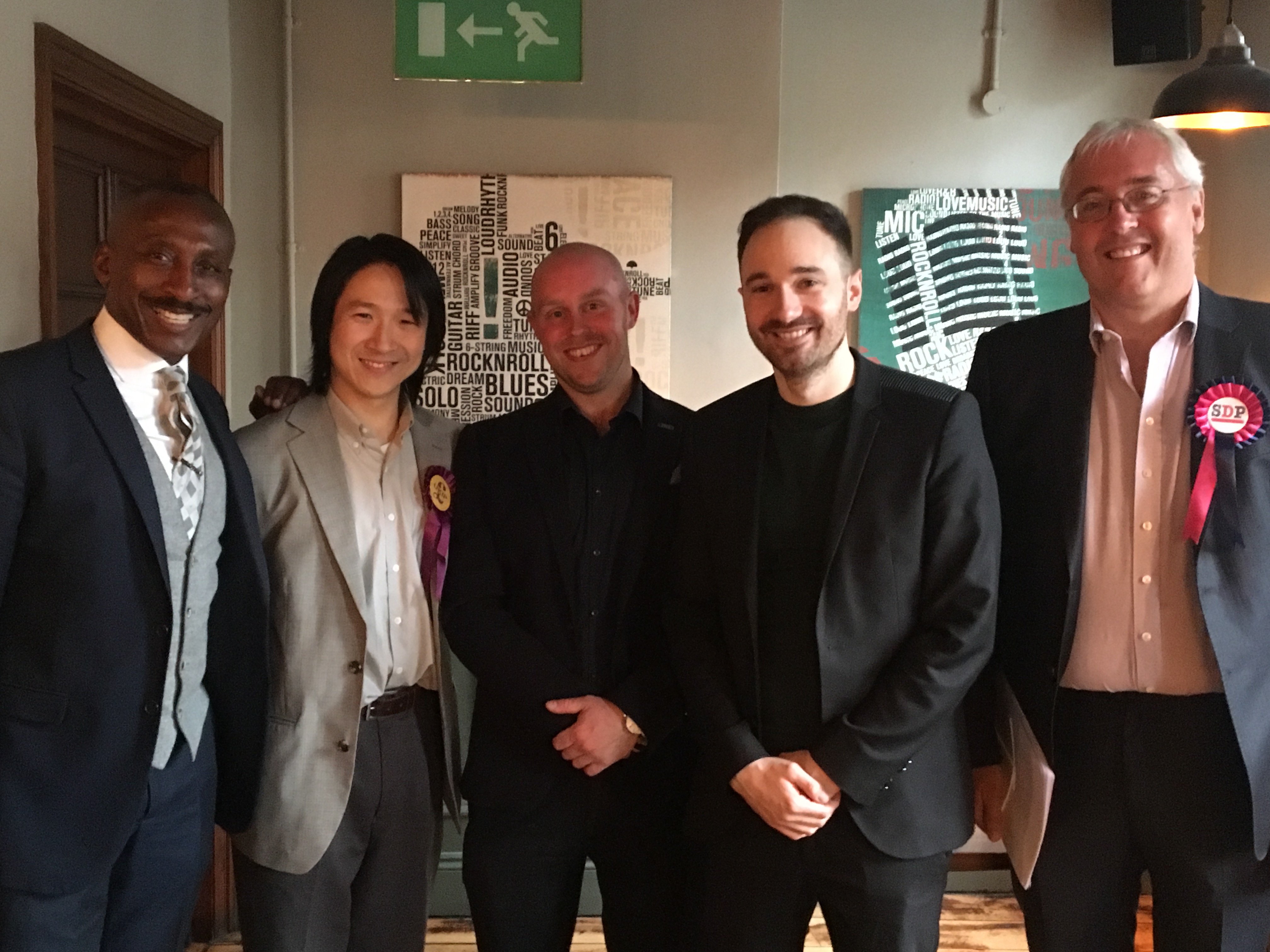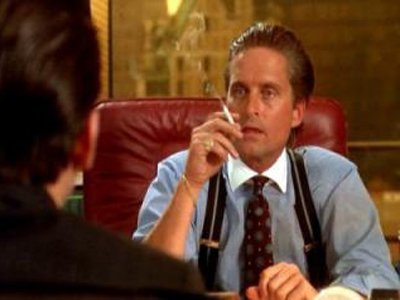We discuss Rishi Sunak’s cabinet and the direction of his Government. We also reflect upon the result of the recent By-Election in Selsdon Vale & Forestdale. Mike then chats with Hoong-Wai Cheah about Liz Truss’ ill-fated mini-budget and the implications for economic liberalism.
Category: Hoong-Wai Cheah
Podcast Episode 63 – Hoong-Wai Cheah: Plan B for Boris & 2022 Predictions
We are joined by Hoong-Wai Cheah, as we discuss the North Shropshire By-Election result, Plan B and the lockdown rebellion, and the impact of any Christmas restrictions. We then go on to make our predictions for 2022.
Fire and rehire
Hoong-Wai Cheah asks –What is fire and rehire? And why does it happen?
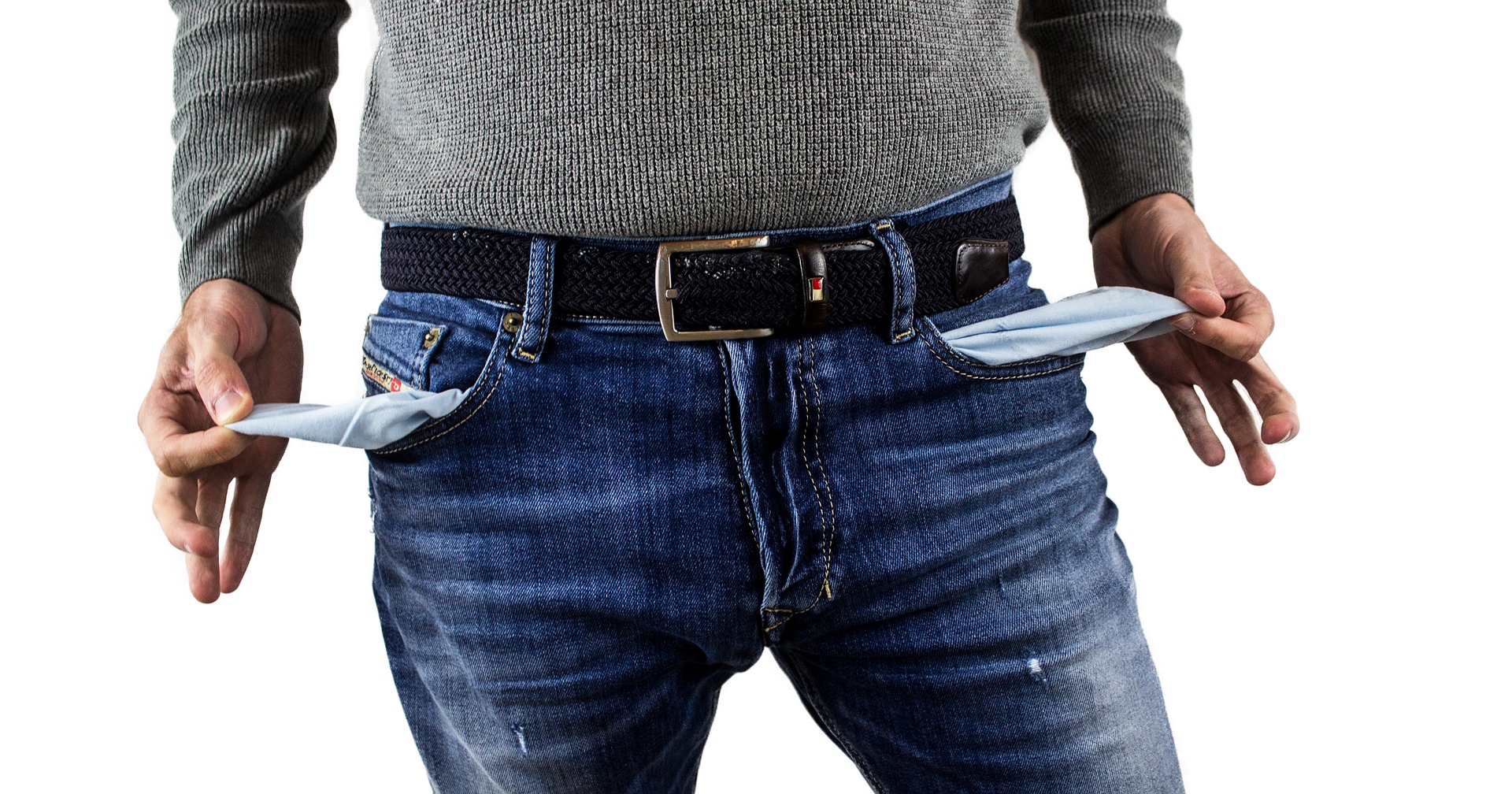
What is the effect of banning fire and rehire? Bad policies can make a bad situation much worse – we have to be careful to not let good intentions cloud our judgement.
Driven by Labour MPs (of course), Parliament is now talking about banning the employment practice known as “fire and rehire” – a method for employers to reduce the wages they pay their employees, by releasing them from their current employment contract (fire), and then re-employing them under a new contract with lower wages (rehire). Sounds like a reprehensible tactic, doesn’t it? It’s unfair that employers can do this to their employees, right?
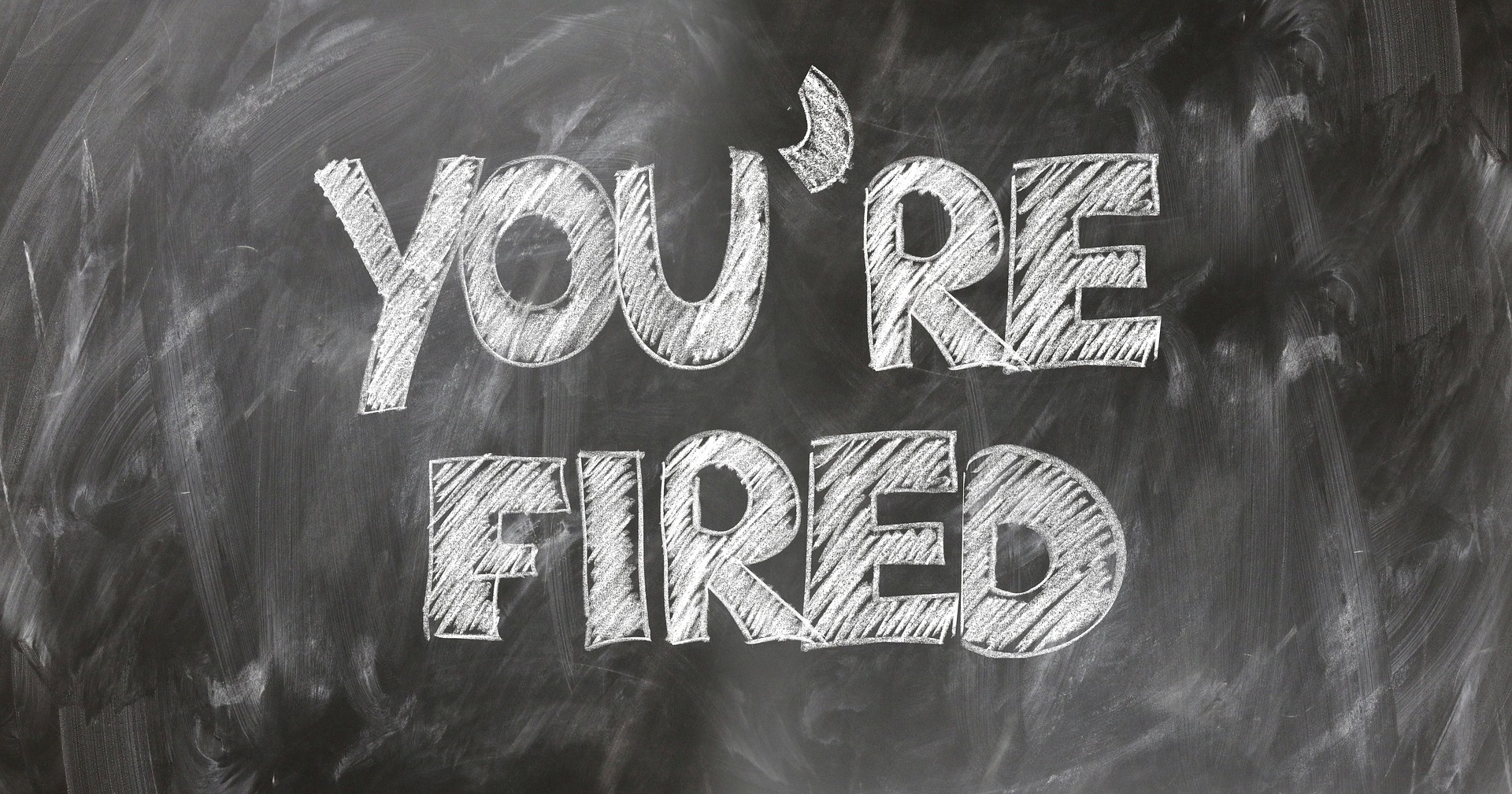
“Sometimes businesses do need to reduce costs. Not just for the sake of profit, but it could be the difference between breaking even or unsustainable losses”
Why would an employer fire and rehire?
Sometimes businesses do need to reduce costs. Not just for the sake of profit, but it could be the difference between breaking even or unsustainable losses. Many big businesses will have bigger financial reserves, or are able to borrow money easier. But smaller businesses don’t have enough flexibility in their operational margins to weather losses for long periods.
“why is it fair for any employee to get paid more for their work than everyone else on the market who does the same work?”
Why would an employee accept fire and rehire?
If the employee can command a better wage elsewhere, why haven’t they gone to work for another employer, instead of coming back to their existing employer for a lower wage? Employees aren’t forced to stay with any employer. In a worst-case situation, the employee has to stay on the new lower wage only until they can find better employment elsewhere.
In most cases, unhappy employees facing an unfair reduction in wages should be able find another employer who pays them better. The only situations in which this is not true is if 1) there is a general economic downturn so wages are falling everywhere, or 2) the employee was being paid above market rate to begin with.
In both cases, why is it fair for any employee to get paid more for their work than everyone else on the market who does the same work?
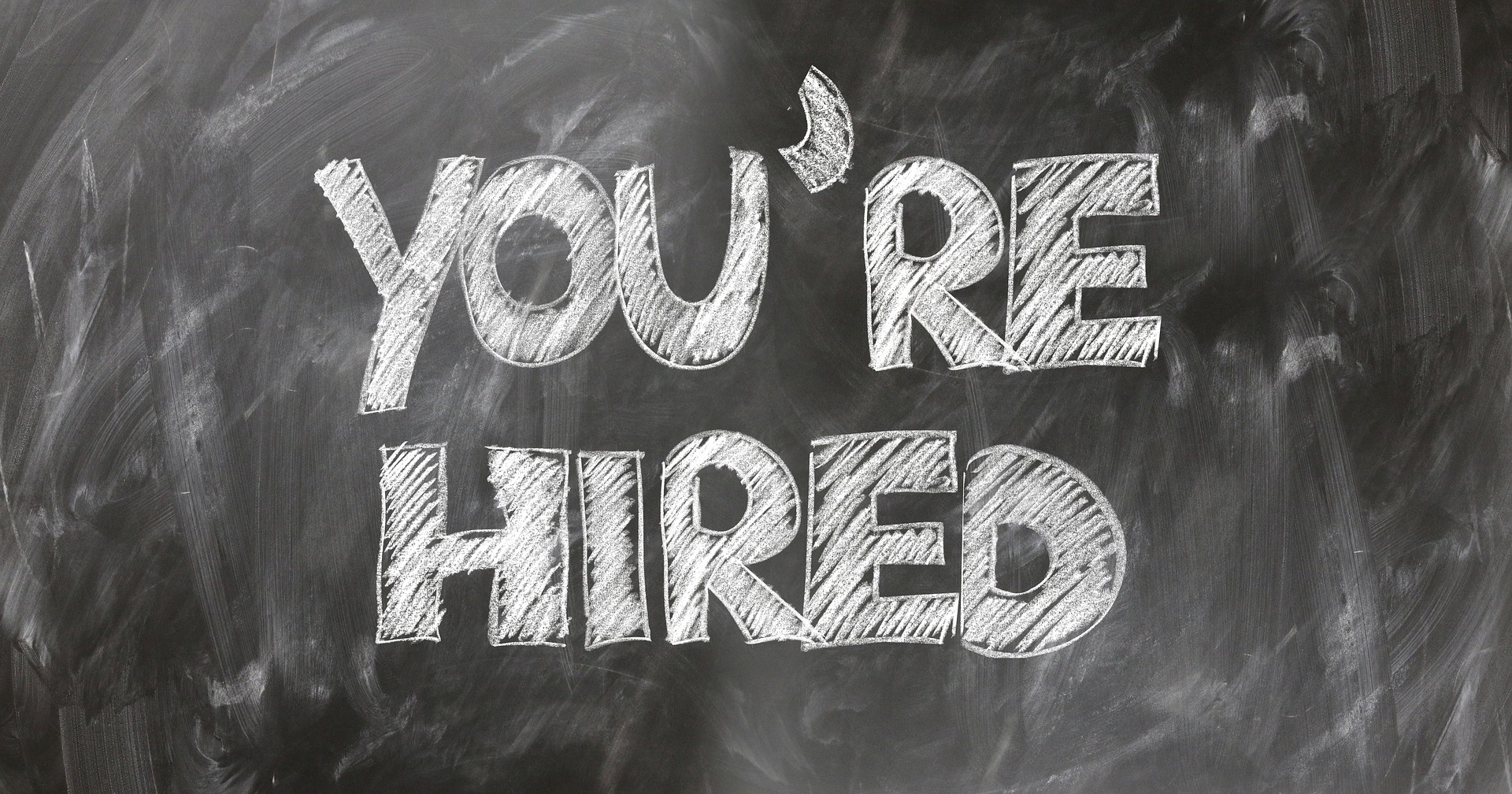
“Alternatively, businesses can terminate existing staff, and hire new staff at lower salaries instead. This means existing staff are forced to become unemployed instead of simply having a lower wage”
What is the effect of banning fire and rehire?
Nevermind the issue of fairness. What’s more significant is the effect of banning fire and rehire on both employers and employees alike.
Without the ability to reduce employee wages, employers will not be able to reduce their operating costs as easily. More businesses facing financial difficulty will go out of business if they cannot lower operational costs whilst retaining the staff they need.
Alternatively, businesses can terminate existing staff, and hire new staff at lower salaries instead. This means existing staff are forced to become unemployed instead of simply having a lower wage.
It might feel unfair for an employee to be moved to a lower wage, but which is better, for employees to remain employed at a lower wage, or for the business to close down, rendering all staff and business owners without an income?
Bad policies can make a bad situation much worse – we have to be careful to not let good intentions cloud this reality from our judgement and decision-making.
Kindly reproduced with permission from HoongWai’s blog at https://hoongwai1984.wordpress.com/2020/11/16/fire-and-rehire/

Image by Gerd Altmann from Pixabay
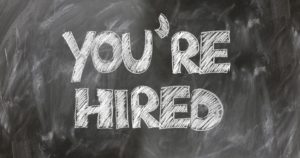
Image by Gerd Altmann from Pixabay

Image by Darko Djurin from Pixabay
What’s the harm in feeding the poor?
Hoong-Wai Cheah asks – What’s the harm in feeding the poor? Why can’t we just print more money and make everyone a little bit richer?
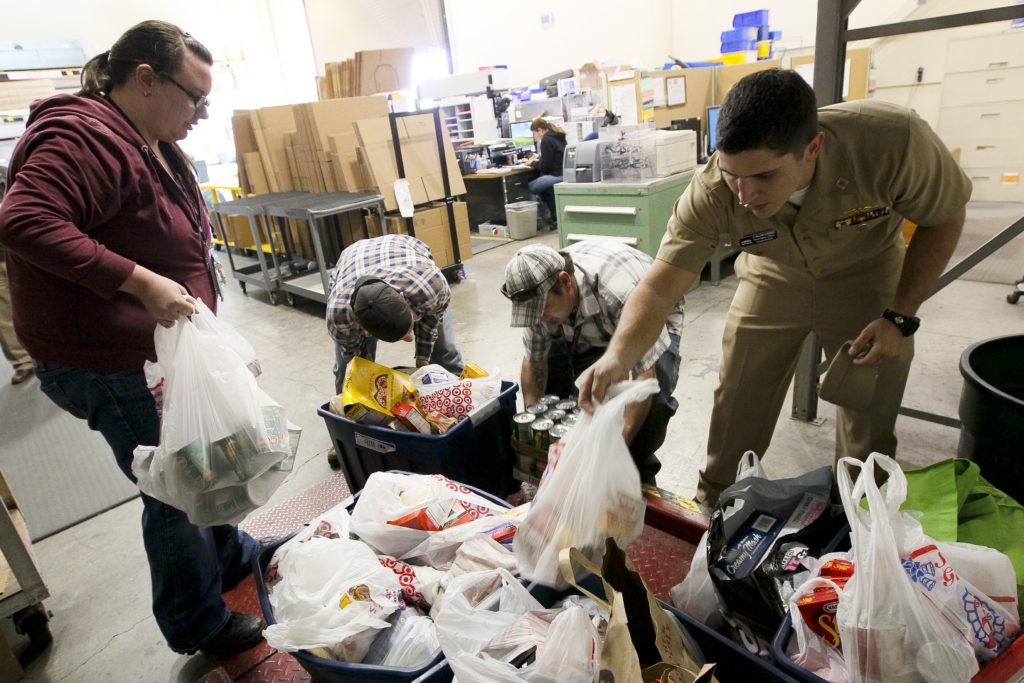
What’s the harm in feeding the poor?
What’s the harm in regularly giving people money, with no strings attached?
Have you heard of the saying “give a man a fish, you feed him for a day. Teach a man to fish, you feed him for life”?
Was oxygen ever so scarce for you that you’ve had to conserve it, else you suffocate?
Have you ever had to work hard to receive your regular exposure to sunlight?
Maybe you cannot see the relevance of all these to the initial question…
“The resources which supply welfare isn’t unlimited. Someone had to grow the food, and people have to work to produce and distribute goods and services”
Taking resources for granted
Even though oxygen is a limited resource, our ready access to it means we don’t treat oxygen as if it is somebody else’s resource. We not only consume as much of it as we want, we even indulge in escalating our consumption of it, when we participate in any form of physical exercise.
If a man had free access to money or food on a regular basis, it will no longer be a blessing, but an expectation. That means he becomes dependent on it, and perceives it to be a resource that he does not consider to be scarce, much as we take for granted that the sun will rise everyday to give us our daily dose of sunlight.
The resources which supply welfare isn’t unlimited. Someone had to grow the food, and people have to work to produce and distribute goods and services.
“Someone who was able to buy 10 bushels of food, is now only able to buy 2 bushels of food. This is the effect of printing money, a practice that many modern governments engage in, under the guise of “quantitative easing”
Printing money does not create wealth
But what about money? Why can’t we just print more money and make everyone a little bit richer?
The problem is, money is just a medium of exchange. It is not a resource in itself, so producing more money does not produce more food or goods.
Let’s illustrate what this means: say you have a tiny economy that produces 100 bushels of food a year. In circulation in this tiny economy is exactly 100 silver coins. The people in this economy use these 100 coins to trade for the food each person produces, such that each coin buys exactly one bushel. So you can see that increasing the number of coins in circulation does not increase the number of bushels available to buy.
What happens if someone decides to produce 400 extra coins for himself? With a total of 500 coins in circulation, this person will initially own 80% of all the coins, which makes him able to buy 80% of all the goods available. But the number of bushels available to buy hasn’t changed, it is still 100 bushels. This person doesn’t create more wealth for himself, but actually steals the wealth that other people have produced, by devaluing the coins that the others have: Someone who was able to buy 10 bushels of food, is now only able to buy 2 bushels of food. This is the effect of printing money, a practice that many modern governments engage in, under the guise of “quantitative easing”. Sure, those who had more will have more taken away, but those who have little will have even less remaining.
“The rich and poor aren’t two homogenous groups. People exist on a continuous spectrum of wealth, and individuals travel up and down it throughout their life. When government prints money to spend, all they achieve is to pull EVERYONE down”
Where does free food and money come from?
Coming back to giving people food and money for free. Since food and goods have to be produced through effort, the only way you can receive them for free is if somebody else sacrifices their payment for it. This is easy to accommodate if we are producing in surplus, but it is not safe to assume that production will always be in surplus. If a government creates more money than what is already in circulation, all it is doing is robbing from those who have, hitting the poor the hardest, adding to the numbers of those in poverty. To feed the new ones in poverty, the government can create more money, but the cycle then repeats, eventually creating a whole nation of poverty. This was the phenomenon of runaway inflation that plagued Zimbabwe and the Soviet nations.
But surely just as there will always be poor people, there will always be rich people? Not necessarily. The rich and poor aren’t two homogenous groups. People exist on a continuous spectrum of wealth, and individuals travel up and down it throughout their life. When government prints money to spend, all they achieve is to pull EVERYONE down. If they keep printing money, eventually even the wealthiest will be pulled down. By that point, everyone will be so poor that the resentment toward the few remaining wealthy will be so powerful that they will be brought down by the force of mob rule.
Modern methods of taxation are designed to ameliorate this. By taxing a proportion of people’s income and consumption, we mitigate the effect of reducing everyone’s wealth. But taxation has its limits: taxation will reduce a person’s income. So if a person’s income is so low that after tax they earn less than welfare payments, it makes little sense for them to be in paid employment. The higher the levels of tax, the worse the problem gets. Likewise with the levels of welfare payments. This means that increasing tax beyond a certain level will actually reduce the overall tax take for the government.
Government does not have unlimited resources
All this is to say that government spending is not without limits – government can neither increase tax nor print money indefinitely. Which means the government has to choose to prioritise how it spends its budget.
In the UK, the two biggest spends for the government is 1) its national healthcare service, and 2) social welfare provision. With limited resources, increasing spending on one of these necessarily means reducing spending on the other. Yet socialists are perpetually calling for ever higher increases for spending on both the NHS and on social welfare benefits.
Sure, doing this bit by bit won’t immediately destroy your country – you’ll get away with raising tax a little bit, or printing a little bit of money every now and then. But every little bit adds up – when the movement is gradual, you don’t notice it happening.
Printing a little bit of money will not immediately cause massive inflation, but over time the cumulative effects of printing money means everybody’s spending power is gradually eroded: savings lose their value, those on low incomes will have even lower incomes.
In the same way raising tax a little bit might temporarily increase the tax take, until those who are just about managing to balance their bills find themselves with even less spending money, putting them below the breadline. This also applies to corporation tax: corporation tax is identical to income tax, except the income is a business’ profits. Businesses already struggling to break even will be driven to shut down.
As a socialist, you may think that your demand for increased spending won’t be enough to tip the whole edifice over, but how will you recognise the straw that breaks the camel’s back?
The push to spend more, to print more money, is precisely what leads to mass poverty. This has been the experience of every nation in human history which chose to indulge in socialist ideals.
“The only way out of this trap is to not rely on government spending to feed the poor. Feed the poor yourself, out of your own surplus. Contribute to food banks, give the homeless a meal and a sheltered place to rest, and do your own part”
Why shouldn’t we feed the poor?
But shouldn’t we feed the poor and hungry? Of course we should!
Unfortunately, any welfare system will create dependents, meaning it becomes unethical to reduce spending on welfare. Which means that the social welfare bill will only keep going up. At some point, somebody will need to say “no more”. Unfortunately, socialist ideologues will jump at this opportunity to condemn the ones who are brave enough to call for a stop to overspending.
The only way out of this trap is to not rely on government spending to feed the poor. Feed the poor yourself, out of your own surplus. Contribute to food banks, give the homeless a meal and a sheltered place to rest, and do your own part. Don’t rely on government spending to do it.
In conclusion: If you want to feed the poor, do it yourself. And if you can’t keep it up indefinitely, then we should teach a man to fish, thus feeding him for life.

Kindly reproduced with permission from HoongWai’s blog at https://hoongwai1984.wordpress.com/2020/10/27/whats-the-harm-in-feeding-the-poor/?fbclid=IwAR2PkEL6Jv3FTPtP9QWEjk85JX61IIEltNOzI4TN7P221E7Nr9SaLsEHnKg
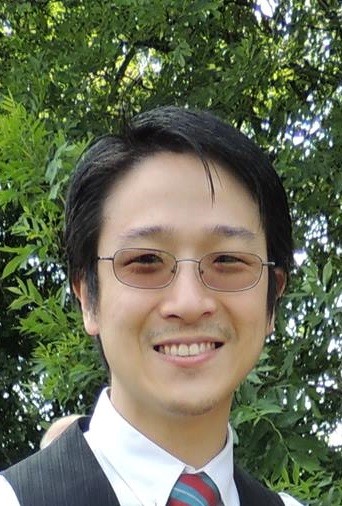
Podcast Episode 34 – Christianity & UK Politics
We are joined by Peter Sonnex of the Brexit Party, Maureen Martin of the Christian Peoples Alliance and Hoong-Wai Cheah of UKIP to discuss Christianity & UK Politics. We ask them:
- Why Christianity is important to them?
- How they think religion and politics should mix?
- How Christianity should inform policy?
- Should we have an established church, and how they think the CofE is performing?
- What should we be doing about Christian persecution abroad?
- What are their predictions for the future of Christianity in the UK?
iTunes:
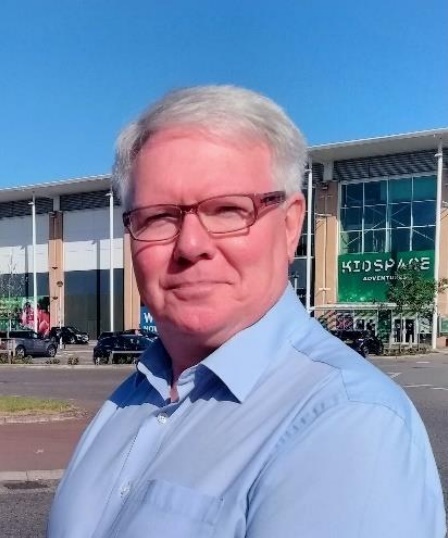
Peter Sonnex
- Peter was the Brexit Party Parliamentary candidate for Croydon Central in the December 2019 General Election
- A career soldier, Peter turned his hand to bus driving before becoming a Parliamentary candidate.
- More recently he has been a volunteer during the Covid crisis.
- Peter has been a guest on the Podcast and written for our website.
- Also spoke at our ‘My Tuppenceworth’ in 2019 about Decency, Democracy, Freedom and Freedoms.
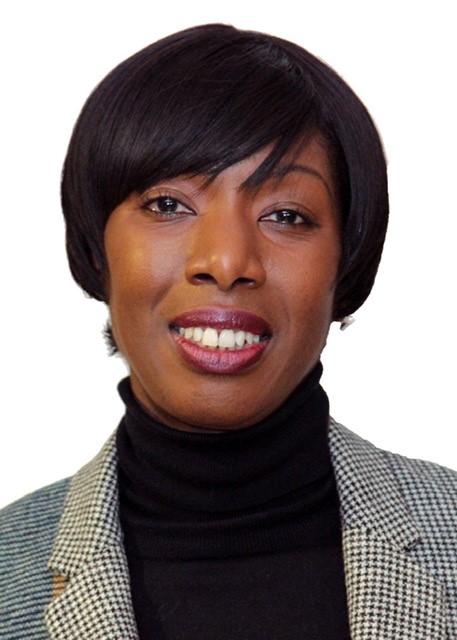
Maureen Martin
- Maureen was (until they were postponed) a Greater London Assembly candidate for the Christian People’s Alliance (CPA).
- Maureen has run for parliament in Lewisham East in every election since 2015, which has included a by-election.
- We have previously spoken with Maureen for our website about what led her to run for the CPA, her experiences running and their priorities for London.
- Maureen has also written for us and her piece Locked Down and Locked out! Can be found on our website.

Hoong Wai Cheah
- Hoong Wai is the Chairman of the Croydon Branch of UKIP.
- In 2017 he stood for UKIP in Lewisham West & Penge in the General Election.
- He stood for the Croydon Council ward of Old Coulsdon in 2018
- We have previously spoken with Hoong Wai for our website about how he became involved in politics and his thoughts on politics in Croydon
- He has also appeared twice as a guest on the podcast discussing Libertarianism and “The future of Freedom & Liberalism”
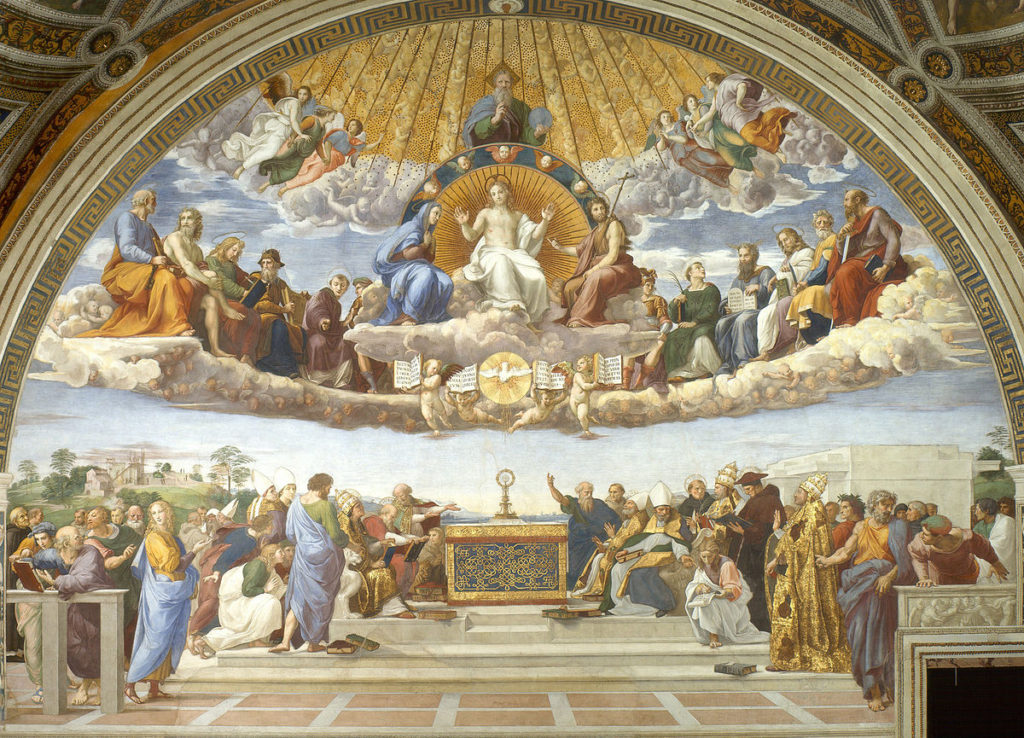
Podcast Episode 20 – The Future of Freedom & “Liberalism” in the UK
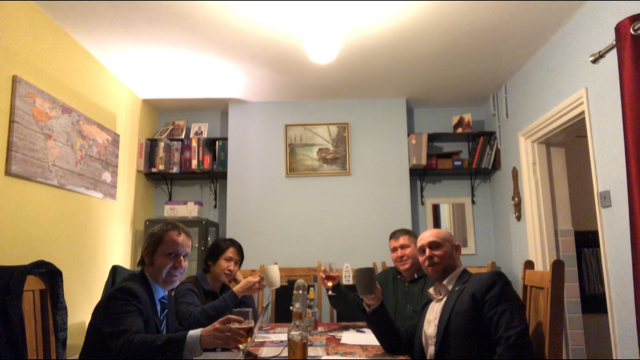
We are joined once again by Sean Finch of the Libertarian Party and Hoong-Wai Cheah of UKIP to discuss the future of democracy & freedom in the UK, Progressive Liberalism vs Classical Liberalism and how we can fight back against the woke culture so prevalent in parts of our society today.
YouTube:
Podcast Episode 19 – Libertarianism: Libertarian Party & UKIP perspectives

We are joined by Sean Finch of the Libertarian Party and Hoong-Wai Cheah of UKIP to discuss libertarianism, what it means to them and how their respective parties approach policy making from a libertarian perspective.
YouTube:
Grassroots democracy in Croydon
Grassroots democracy was in action in Croydon on Thursday 18th April, when the Croydon Constitutionalists held their inaugural Debate for Democracy. Five democracy honouring pro-Brexit parties spoke and took place in a debate at the Green Dragon on Croydon high street.
Unlike so many in Westminster all parties agree on honouring the biggest vote in British history and the evening focused on a post-Brexit Britain. Questions covered a wide range of topics from knife crime, where a number of participants spoke about the need to rebuild families, alongside tough sentences. Chris Mendes the former Vote Leave lead in Croydon South and now Foundation Party Leader quoted a recent case where someone caught with a assortment of knives on them, was given just a four month suspended sentence.
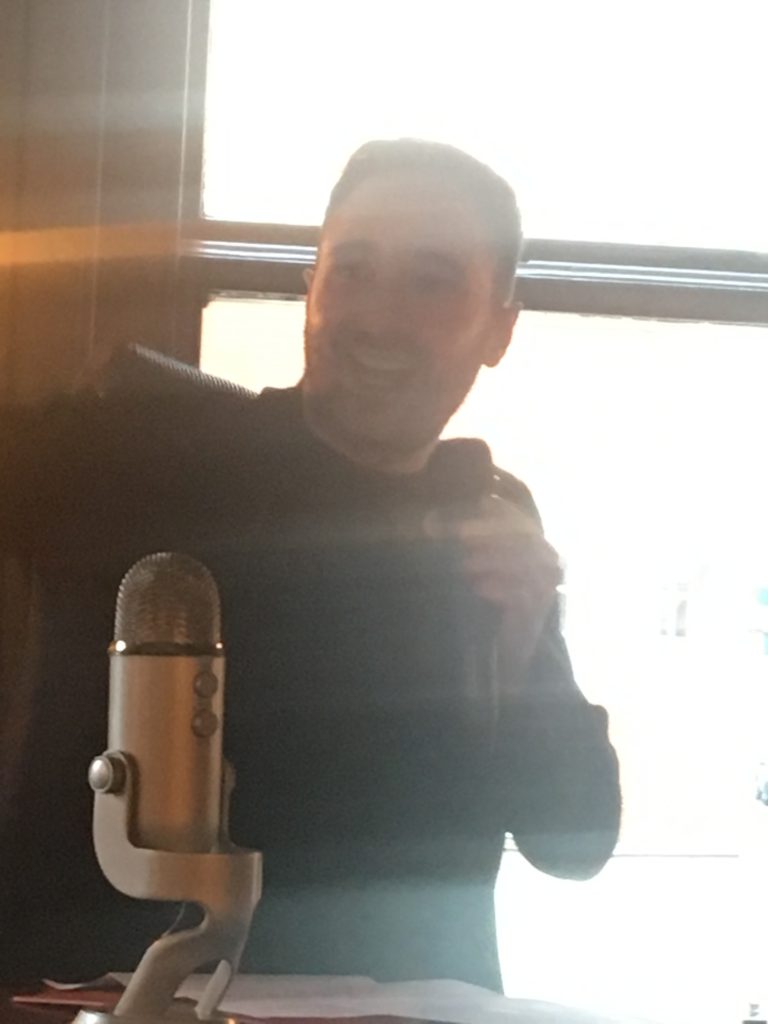
Parties policies on the Customs Union was an area of agreement with all saying they wanted to leave it, and move to WTO terms. In the event us being caught in the Backstop, Richard Plackett who in 2002 stood for Labour in Shirley and is now the SDP London and South East Regional Organiser, suggested they would want to give notice to leave and use the Vienna Convention to ensure we did.
Direct verses Representative democracy was a reoccurring theme, Neville Watson the Democrats and Veterans Party Spokesman for Cities, Urban Communities & Sport, and Sean Finch Libertarian Party candidate in the Lewisham East By Election speaking in favour of a Swiss style model. UKIP Croydon Chair Hoong Wai Cheah, who stood in Lewisham West in the 2017 general election and Old Coulsdon in last years local elections, spoke about UKIP retaining its deposit in the Newport by-election and how we need to move to a Proportional Representation system for elections.
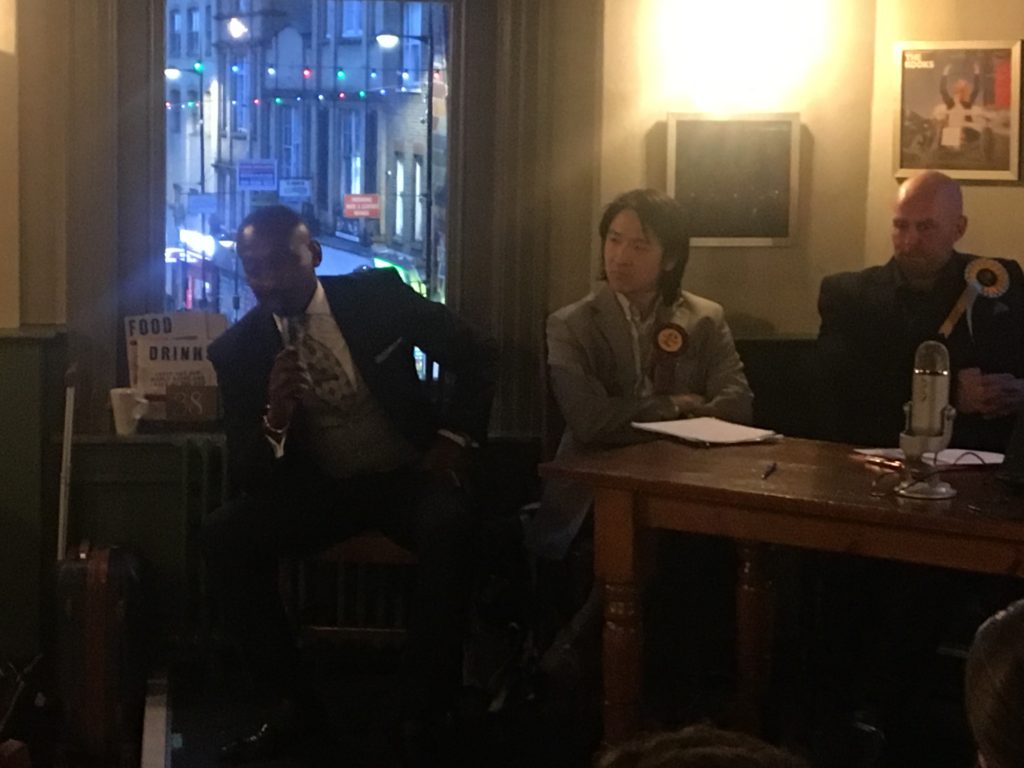
In a change from the tribal nature of so much of politics the representatives and their supporters stayed behind to enjoy a drink and swap stories from many campaign trails. With the current two party system broken these parties showed how the future of politics can be different.
Audio from the night available on YouTube at:
Speeches https://youtu.be/UPIirhZECTY
Panel Part 1 https://youtu.be/J_e-2IffCEo
Panel Part 2 https://youtu.be/Ults3b-k-cQ
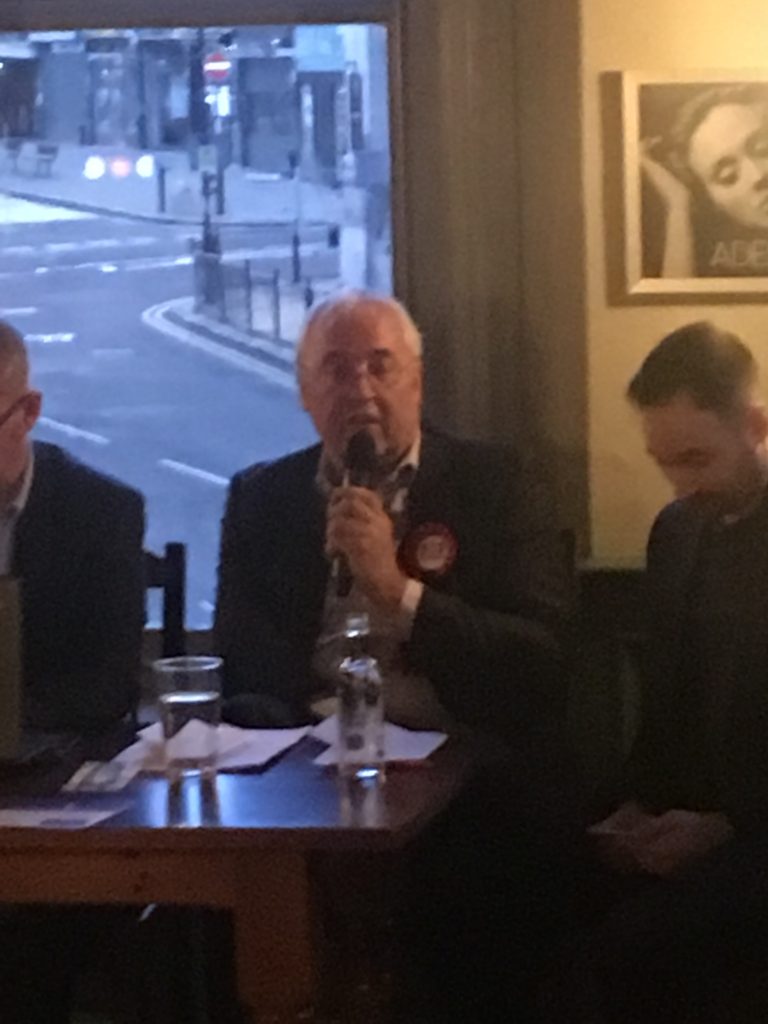
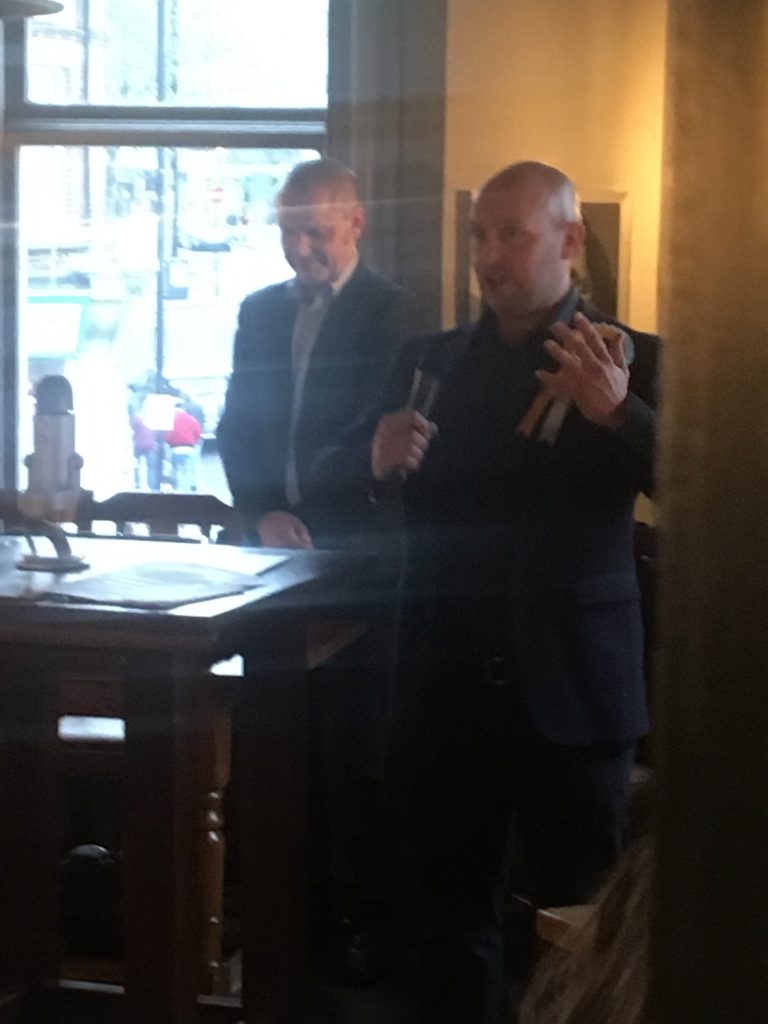
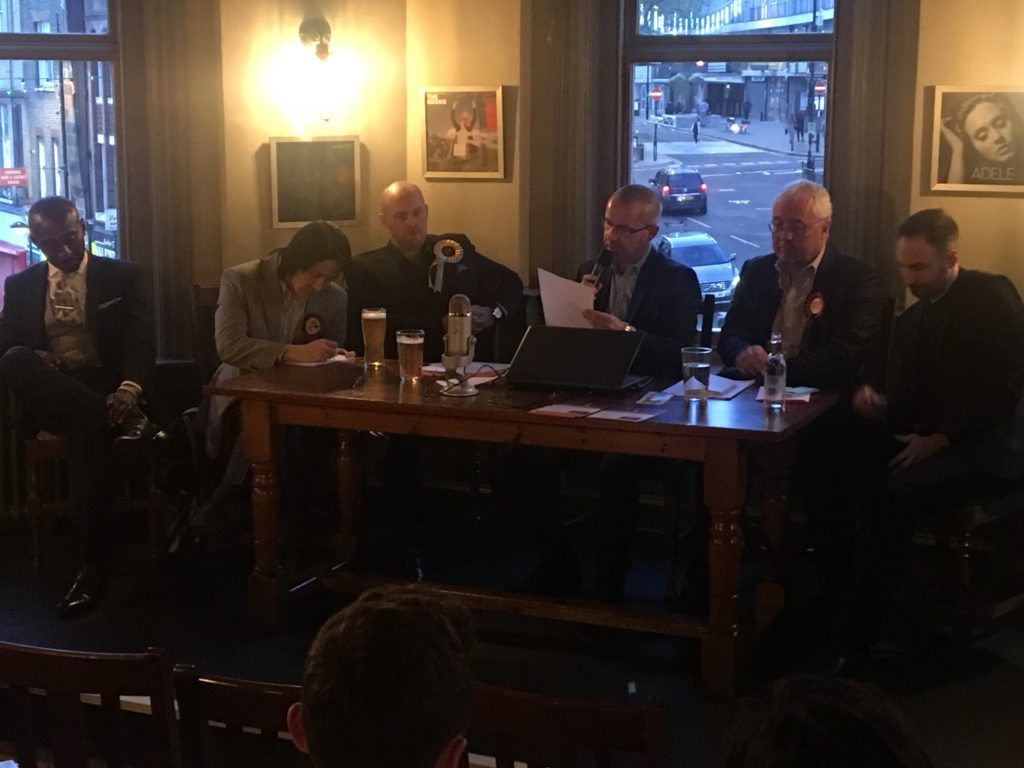
Press Release – Debate for Democracy
The Croydon Constitutionalists are hosting a ‘Debate for Democracy’ of democracy honouring pro-Brexit parties in April. Representatives of the Democrats and Veterans Party, Foundation Party, Libertarian Party, SDP and UK Independence Party, will be setting out their agenda for a democratic Britain and taking part in the panel debate.
The debate will be held upstairs at the Green Dragon, 60 High St, Croydon CR0 1NA from 7pm on the 18th April 2019. All parties are pro-Brexit and honouring the biggest vote in British history. Each speaker will be given 5 minutes to talk about their party and plans for Britain free from the EU.
Democrats and Veterans Party – Neville Watson
Party spokesman for Cities, Urban Communities & Sport, Neville has been actively involved as a social / community activist for over 30 years, often fighting against the odds for social justice and equality. The party fights to ensure that the government serve the interests of the people ahead of special and foreign interests; and for the sovereign will of the British people to be asserted on our servants in Parliament – by campaigning for Direct Democracy.
Foundation Party – Chris Mendes
Party Leader Chris has declared the major political parties not fit for purpose, the country is desperately missing a party, one that is more patriotic and genuinely at the service of ordinary people rather than themselves. Chris was the Vote Leave lead in Croydon South during the referendum. The Foundation Party is a long-term project for building a serious platform for clear patriotic principles for like-minded individuals who believe that our country can do so much better.
Libertarian Party – Sean Finch
Libertarian party candidate in the Lewisham East By Election, Sean is an avid free-speech advocate. The party stands for lower taxes for both individuals and companies, small government, free speech and individual responsibility. They support free trade and free enterprise whilst believing that people should make their own choices and not rely on the government. They support a withdrawal from the European Union and a return to the free trade agreements that it was founded on.
SDP – Richard Plackett
Richard is the London and South East Regional Organiser for the Social Democratic Party. The SDP represents the radical centre of British politics today, defining the limits of the market and the state and harnessing both to rebuild Britain. The Party aims to provide a political home to all social democrats who seek a stronger and more capable state along with greater individual responsibility, trust and social solidarity.
UKIP – Hoong Wai Cheah
UKIP Croydon Chair Hoong Wai has stood in Coulsdon for recent council elections and Lewisham West in the 2017 general election. UKIP is a Party that represents freedom, freedom from the European Union, freedom from political correctness and Cultural Marxism, freedom of speech, and freedom to be proud to be British. UKIP’s mission is to show the way forward for Britain as an independent, self-governing, democratic nation. They want trade, friendship and co-operation with the world.
This is a great chance to see local representatives of parties that are growing as people are increasingly dissatisfied with the discredited politics of those in Westminster.
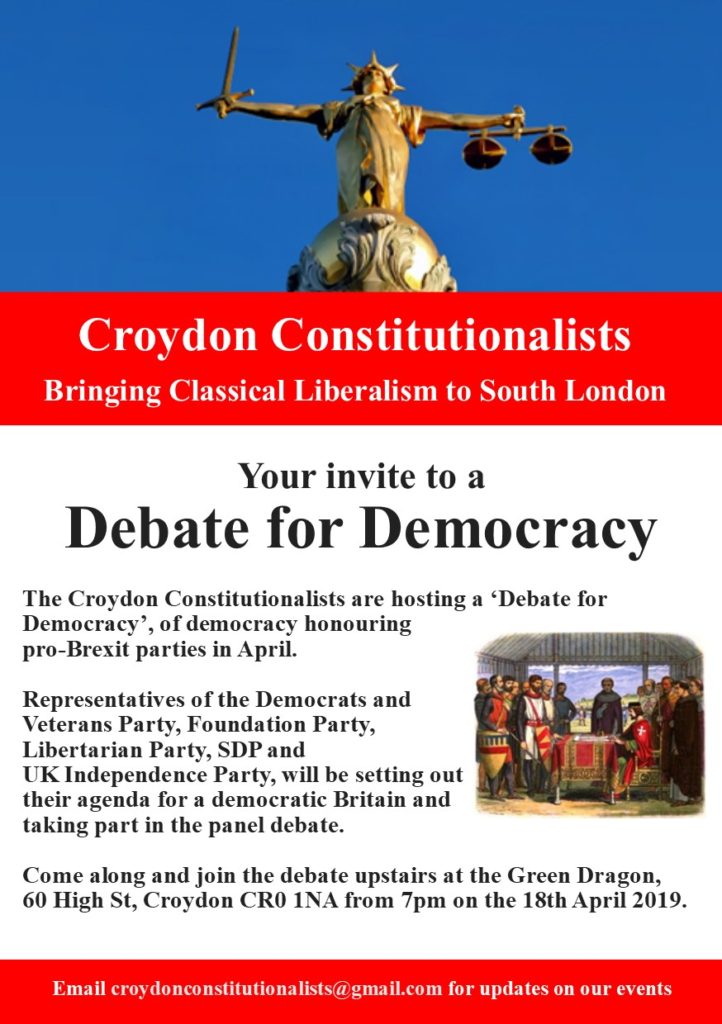
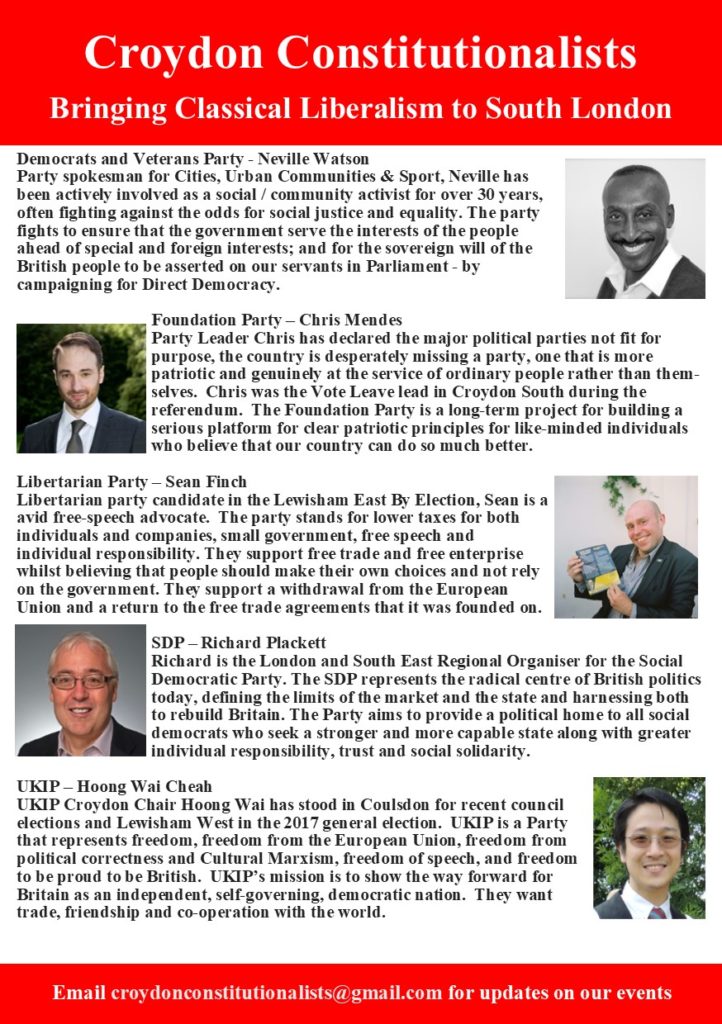
Financiers are not just “greedy bankers”
Hoong-Wai writes about the important role investment banking plays in the economy and the the positive impacts of speculation https://hoongwai1984.wordpress.com/2018/06/17/financiers-are-not-just-greedy-bankers/

